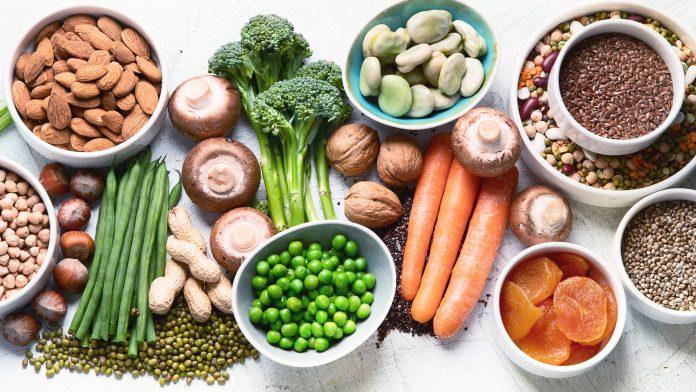The EU funded project PROTEIN2FOOD has successfully developed an environmentally friendly and resource efficient processing method for creating plant-based proteins.
The EU-funded PROTEIN2FOOD project, will present their results in the wider context of Europe’s protein transition at the conference: “Food for the future: Accelerating the protein transition”, taking place in Brussels, Belgium.
Meeting the globally growing demand for nutritious, affordable and sustainable foods, especially proteins, is a unique challenge, that the EU funded project PROTEIN2FOOD has been committed to solving for the past five years.
Using high-quality protein seed crops and high-quantity protein legumes, the project has worked with protein-rich food crops and developed new plant-based protein-rich food prototypes, such as novel lentil-based infant formula and a milk alternative. With these products, the project aims to increase the choices of plant-based protein products, to help consumers decrease their animal-protein intake.
The result
PROTEIN2FOOD has identified important genetic markers for protein production in the selected crops. This has resulted in the discovery of two quinoa varieties that have much higher protein content compared to other varieties, which could help enhance protein production in Europe.
The project developed environmentally friendly and resource efficient processing methods, such as aqueous processing to create new lentil, faba bean and lupin protein isolates, which were not previously available to the market. These processes involved fewer processing steps, consider side streams and increase ingredient yields.
PROTEIN2FOOD also researched market conditions and socio-economic aspects of the protein crops, which showed that quinoa was the crop most suitable across 70% European arable land, followed by blue lupine (23%).
Dr. Emanuele Zannini, scientific advisor on PROTEIN2FOOD and senior research coordinator at the University College of Cork, said: “We have developed new generations of nutritious food prototypes that are both respectful of natural resources, are tastier and more sustainable than alternatives already on the market. PROTEIN2FOOD has developed an impressive amount of knowledge that we look forward to sharing at the final conference”.
The conference aims to bring together researchers, policy makers and industry representatives to showcase the project’s results, discuss the opportunities and barriers of transitioning towards more high-quality, protein-rich plant-based foods and examine the policy tools and implications that can help Europe’s protein transition stays on track.



